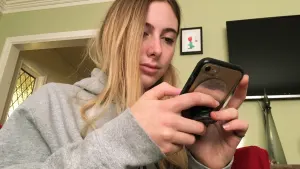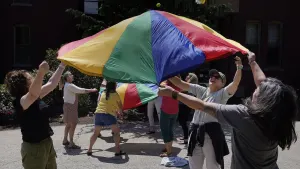More Stories
Pfizer announced this morning that its COVID-19 vaccine works for children ages 5 to 11. It now plans to seek U.S. authorization for this age group soon.
WHY IS THIS ANNOUNCEMENT IMPORTANT?
The vaccine made by Pfizer and its German partner BioNTech is already available for anyone 12 and older. But with kids now back in school and the extra-contagious delta variant causing a huge jump in pediatric infections, many parents are anxiously awaiting vaccinations for their younger children.
WHEN WILL THE VACCINE BE APPROVED?
The Food and Drug Administration’s vaccine chief, Dr. Peter Marks, said on Sept. 10 that the agency would rapidly evaluate COVID-19 vaccinations for younger children as soon as it got the needed data. Dr. Marks told The Associated Press that he was “very, very hopeful” that vaccinations for 5- to 11-year-olds would be underway by year’s end.
WHAT IS THE DOSAGE FOR THIS AGE GROUP?
For elementary school-aged kids, Pfizer tested a much lower dose -- a third of the amount that’s in each shot given now. Yet after their second dose, children ages 5 to 11 developed coronavirus-fighting antibody levels just as strong as teenagers and young adults, Dr. Bill Gruber, a Pfizer senior vice president, told The Associated Press.
WHAT ARE THE SIDE EFFECTS FOR SMALL CHILDREN?
Dr. Christina Johns, the senior medical advisor and vice president of communications for PM Pediatrics, says children should expect vaccine side effects similar to those that adults have seen.
WILL IT PROTECT AGAINST THE DELTA VARIANT?
Although Dr. Johns has not seen the complete Pfizer report, she says that the timing during which this trial was taking place - amid rising cases of the delta variant - indicates that the vaccine should protect children against it.
WHAT ABOUT RARE SIDE EFFECTS, LIKE HEART INFLAMMATION?
The study isn’t large enough to detect any extremely rare side effects, such as the heart inflammation that sometimes occurs after the second dose, mostly in young men. The FDA’s Marks said the pediatric studies should be large enough to rule out any higher risk to young children. Dr. Bill Gruber, a Pfizer senior vice president, said that once the vaccine is authorized for younger children, they’ll be carefully monitored for rare risks just like everyone else.
WHAT ABOUT MODERNA AND JOHNSON & JOHNSON?
A second U.S. vaccine maker, Moderna, also is studying its shots in elementary school-aged children. In April, Johnson & Johnson expanded its phase 2a clinical trial of COVID-19 vaccine to include adolescents.
WHAT ABOUT YOUNGER KIDS AND BABIES?
Pfizer and Moderna are studying even younger children as well, down to 6-month-olds. Results are expected later in the year.
AP wire services contributed to this report.
More from News 12
1:28

5 simple steps for long-term benefits to your health and heart
1:32

8 tips for working safely during hot weather
3:31

Guide: Ways to set your child up for financial success
3:18

Guide: The importance of good sleep and how to get it

Guide: Mental health resources available in the tri-state
9:36
